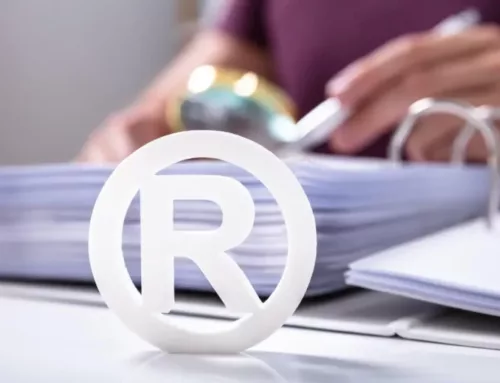Protecting intellectual property is critical for any business. Registering the name of a business as a trademark grants the business exclusive rights to use that name for the types of goods and services named in the trademark application. But what happens when a business’s IP rights are violated by another business that has stolen its name or other intellectual property? Fortunately, there are legal remedies that businesses can take when their IP rights have been violated. Intellectual property lawyers are dedicated to helping clients protect their IP rights. If you believe that your IP rights have been violated by another business and are prepared to take the necessary steps to protect your intellectual property and put an end to the violations, consider contacting War IP Law, PLLC, today at (202) 800-3754 to schedule a consultation.
What Is Intellectual Property?
Intellectual property (IP) is any creation of the mind, including inventions, literary and artistic works, designs, symbols, names, and images that are used in commerce. Intellectual property rights offer protections for these creations, which prevent other entities from using them. Creators apply for intellectual property rights so that they can freely share their IP with the public without worrying about other entities profiting from it. The main types of intellectual property protections include:
- Trademarks—A trademark protects recognizable marks, such as logos, designs, and business names. Once a trademark application has been accepted, the owner can use it forever, as long as he or she maintains the registration.
- Copyrights—Copyrights protect the creators of original works, such as literature and art. A copyright usually lasts for the owner’s lifetime and 70 years after his or her death
- Patents—A patent grants exclusive rights for new inventions or improvements to previous inventions. As long as the maintenance fees are timely paid, a utility patent provides protection for 20 years, after which time the IP enters the public domain
- Trade secrets—Intellectual property that provides a competitive advantage for the business falls under the trade secrets category.
Any entity that uses any of these types of intellectual property without the right to do so is guilty of an intellectual property violation.
Sending a Cease and Desist Stop to IP Infringement
Businesses whose intellectual property rights have been violated should consider sending a cease-and-desist letter as a first step. According to a study by Santa Clara University, only about 3 percent of intellectual property disputes go to court, which is likely due to the effectiveness of cease-and-desist letters. A cease-and-desist letter notifies an intellectual property infringer that the legal owner of the IP is aware of the violation and is prepared to take legal action to stop the infringement. The contents of a cease-and-desist letter will vary depending on the nature of the violation and the business sending the letter. However, certain components should be included in most of these letters, including:
- Demand an end to the infringement
- Outline the specific type of infringement
- Specify what type of legal action will be taken if the infringement does not stop
- Set a deadline that the recipient must respond by before legal action is taken
The intellectual property lawyers at War IP Law, PLLC, help our clients draft effective cease-and-desist letters. In cases where IP rights are violated, we are prepared to help clients put an end to the violation and protect their rights.
Legal Action for IP Rights Violations
In many cases, a cease-and-desist letter will be sufficient for stopping the infringement of intellectual property. However, not all IP rights violators respond to cease-and-desist letters. Fortunately, companies whose rights have been violated have legal recourse in both criminal and civil courts.
Filing a Lawsuit for Intellectual Property Infringements
Litigation can help put an end to intellectual property infringement when a cease-and-desist letter is not effective. To take legal action in civil court, the owner of the intellectual property can file a complaint in court and serve a copy of the complaint to the entity that has allegedly violated the IP rights. Most intellectual property lawsuits will be filed in federal court.
The damages available in an intellectual property infringement lawsuit will depend on the circumstances of the case. However, the following remedies may be available in these lawsuits:
- An injunction that orders the violating party to stop using the intellectual property; injunctions can also remove the product from the market
- An order to repay the losses suffered by the intellectual property owner
- All or a portion of the infringer’s profits from the use of the intellectual property may be awarded to the IP owner
- An order that makes the violator responsible for paying the IP owner’s attorney fees
- An award of punitive damages in some cases
Criminal Penalties for Intellectual Property Violations
The United States Department of Justice will levy criminal penalties for certain types of intellectual property infringement, including:
- Counterfeit trademarks
- Counterfeit labeling
- Criminal copyright infringement (distribution of at least ten copies of a copyrighted work)
- Theft of trade secrets
- Camcording (recording movies in public theaters)
Contact a Lawyer for Assistance with Intellectual Property Violations
The intellectual property of a business is sacred. Hardworking business owners go through an extensive process to protect their intellectual property. When IP rights are violated, these businesses must take the necessary legal action to stop the infringement and protect their rights. Such violations often cost businesses serious money, which can potentially be restored by filing a civil lawsuit against the entity that committed intellectual property infringement. Intellectual property lawyers help business owners write and send strong cease-and-desist letters, file civil intellectual property lawsuits, and take other legal measures to stop other entities from infringing on their intellectual property rights. If you are a business owner who believes your IP rights have been violated, consider contacting War IP Law, PLLC, today by calling (202) 800-3754 to learn more about your options for legal recourse.






